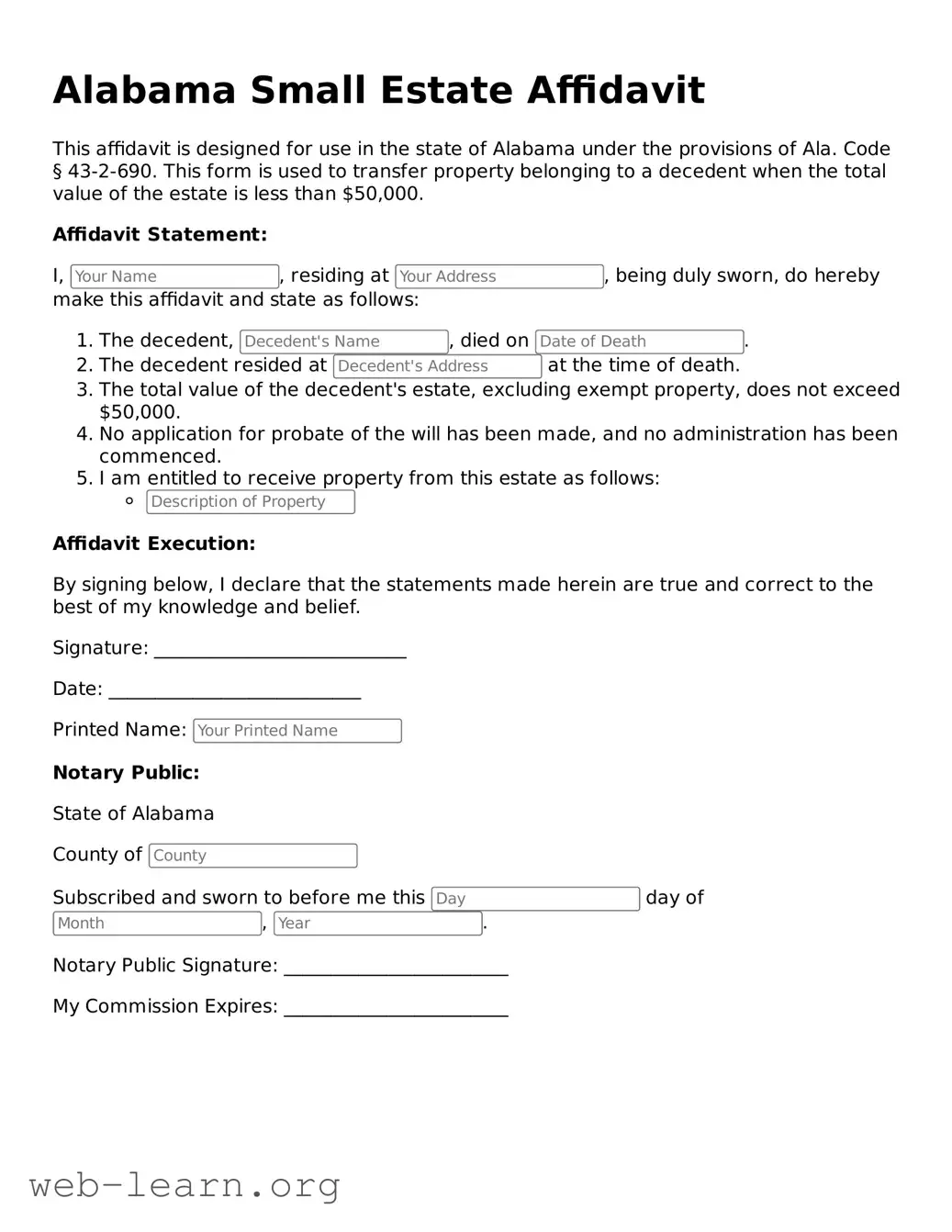Filling out the Alabama Small Estate Affidavit can be a straightforward process, but many people make common mistakes that can delay the settlement of an estate. One frequent error is not accurately identifying the deceased. Be sure to provide the full legal name of the deceased, including any middle names or suffixes. Omitting this important detail can lead to confusion and complications down the line.
Another common mistake is failing to include all necessary details about the assets. The form requires a description of the property, including its value and location. Leaving out certain assets can cause problems, especially if they exceed the limit for small estates. It is essential to list all relevant assets and ensure they are valued correctly.
Many individuals also neglect to sign the affidavit in front of a notary public. This step is crucial because an unsworn affidavit will not be accepted. Ensure that all required signatures are present, and that the document is dated appropriately. Skipping this step can result in a rejection of the affidavit.
A key point that often gets overlooked is the requirement for eligibility. To use a Small Estate Affidavit, the estate must meet specific criteria, including having a total value of less than $25,000. Failing to verify that the estate meets this requirement can lead to wasted time and resources.
When filling out the form, some people may also forget to include the heirs or beneficiaries correctly. It is essential to properly identify all heirs and their respective shares in the estate. Inaccuracies here can create disputes among family members later and complicate the administration process.
Underestimating the importance of supporting documentation is another mistake. While the Small Estate Affidavit itself is essential, providing additional documents—such as copies of the death certificate and any will—can strengthen your case. Without these documents, your affidavit may be questioned or rejected.
Additionally, people sometimes assume that once the affidavit is filed, everything will be taken care of automatically. In reality, follow-up is essential. Those involved in the estate should monitor its progress and address any issues that arise promptly.
Finally, individuals can be careless when filling out personal information. Ensure that names, addresses, and identifying numbers (like Social Security numbers) are correct. Errors in this section can lead to further problems, including identity verification issues. Accuracy is critical throughout the entire process.
